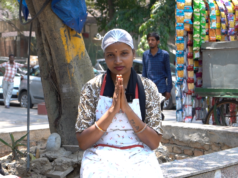I recently read, for the first time, the Declaration of Purna Swaraj. I was impressed, but I was also surprised. The ideals expressed in Lahore in 1929 seem a world away from the reality of India today.
The Declaration of Puma Swaraj is a strong, clear document. It boldly articulates the grievances of the Indian people against the British, as well as a different way forward for an independent India. It outlines abuses and prioritises freedom. When I read it, I feel inspired. Several sections particularly jump out at me. The opening paragraph reads:
We believe that it is the inalienable right of the Indian people, as of any other people, to have freedom and to enjoy the fruits of their toil and have the necessities of life, so that they may have full opportunities of growth. We believe also that if any government deprives a people of these rights and oppresses them, the people have a further right to alter it or to abolish it. The British government in India has not only deprived the Indian people of their freedom but has based itself on the exploitation of the masses, and has ruined India economically, politically, culturally, and spiritually. We believe, therefore, that India must sever the British connection and attain Purna Swaraj, or complete independence.
It goes on to highlight unfair taxation, the death of village industry, currency manipulation and trade barriers, diminished international reputation, problems in education, and general disempowerment of the people as reasons that all ties with Britian must be severed. It lays out a determined plan of peaceful civil obedience to bring about that end.
There are lots of things I like about this document, but here is the biggest thing. Rather than complaining pathetically about how mean the British are, this document sounds confident and determined. I hear in its words a people who are sure of who they are and the rights that they therefore hold. They assert rights to the fruits of their toil, implying that there will indeed be toil. They talk about opportunities of growth, not entitlements to wealth. They hold strongly to the ideal of freedom and its importance for all people. Their central complaints against the British are that they have been denied freedom and the right to earn a livelihood.
Eighty years later, in the India of 2011, the British are long gone, but people still fight for the right to earn a livelihood. It is not a colonial power, but a horrendously corrupt system and license raj that makes it difficult for people to toil and enjoy the fruits of that toil. Many of the problems outlined in the Declaration of Purna Swaraj are still around in one form or another, though now they are caused by the actions of a domestic, rather than a foreign, power.
We do not need another declaration or another freedom struggle. India has a democratic system in place that allows for the changes that are necessary. But the government would do well to remember the principles of Purna Swaraj. India should be a free country full of free people. Everyone, from wildly successful businessmen to street vendors and rickshaw pullers, should be free to work and enjoy the fruits of his labour. The government should make freedom its central goal and do all it can to remove itself from interference in the lives of its citizens.
Post Disclaimer
The opinions expressed in this essay are those of the authors. They do not purport to reflect the opinions or views of CCS.





